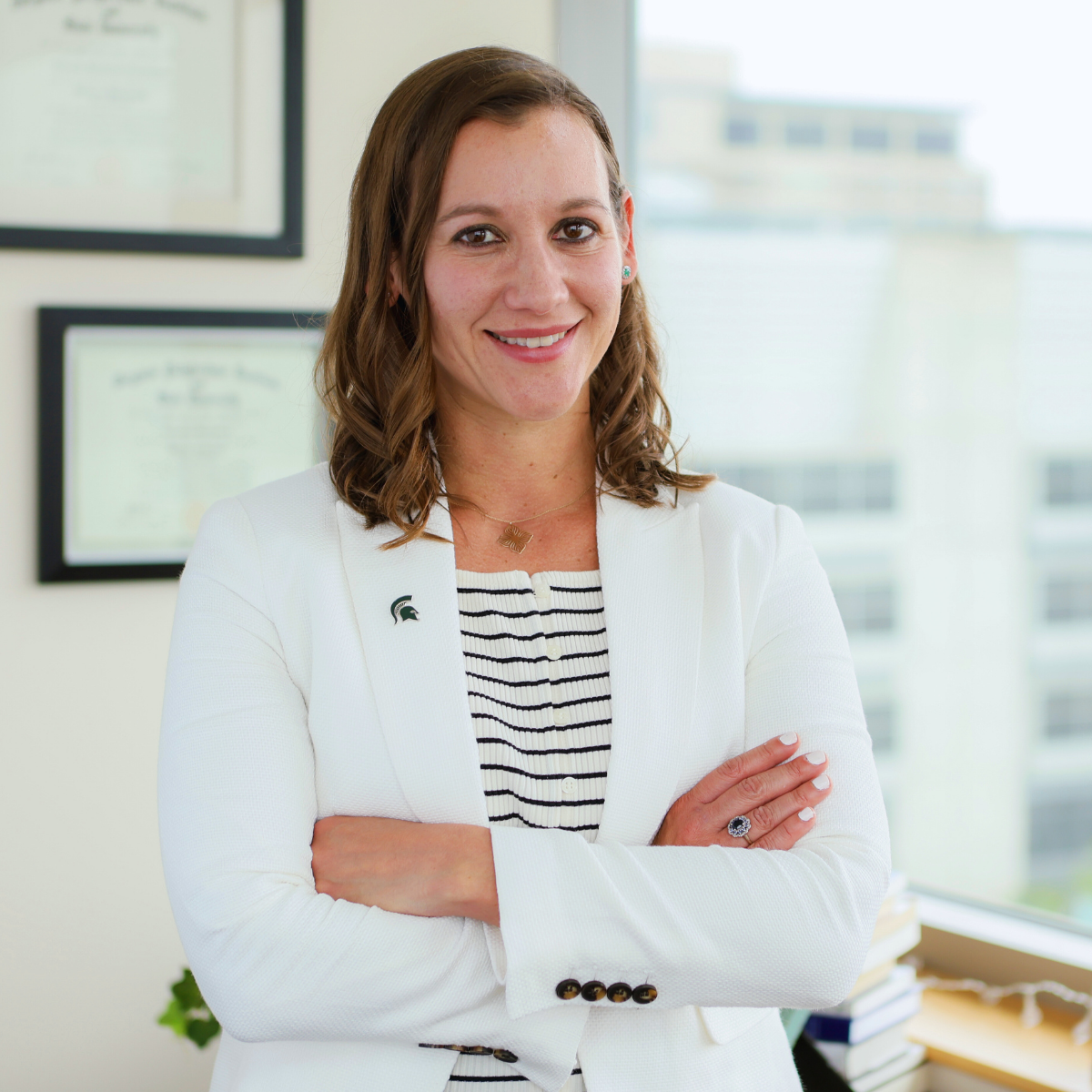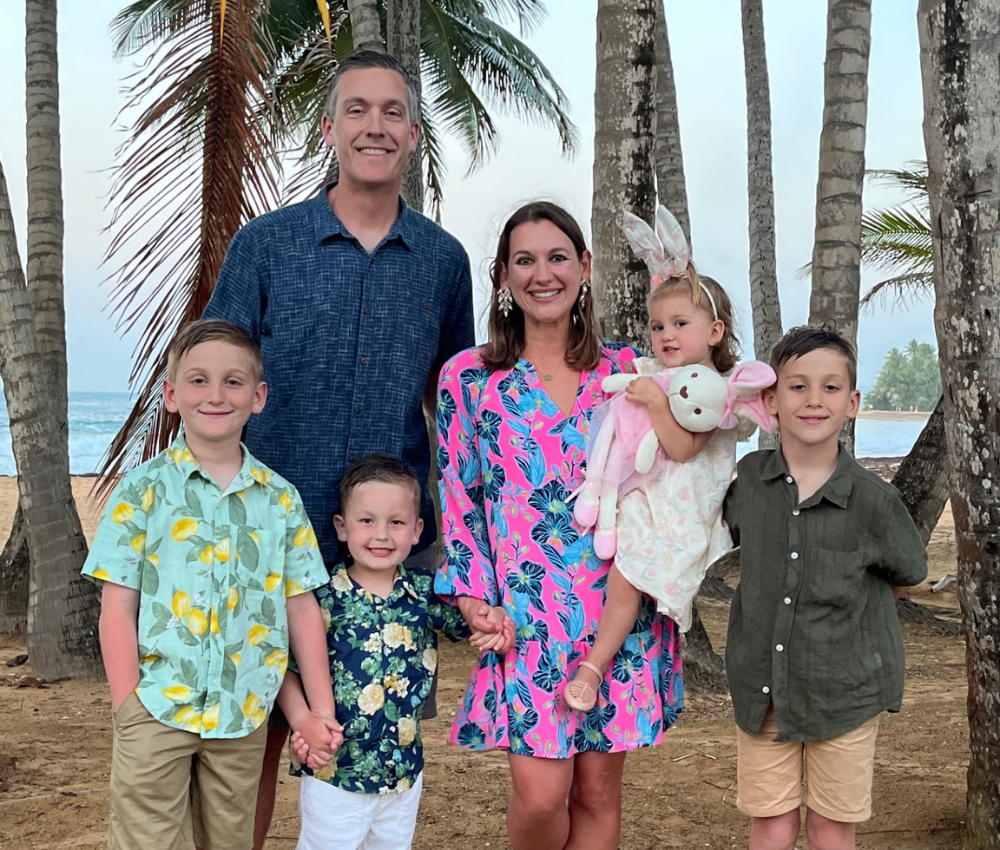Balancing Science, Advocacy and Parenthood: MSU Psychologist Earns Fulbright to Expand Care for Kids with Chronic Pain
July 14, 2025
 Natoshia Cunningham has made it her life’s work to create tailored psychological treatments for children facing chronic pain. A leading researcher in the field, she is passionate about improving care for children.
Natoshia Cunningham has made it her life’s work to create tailored psychological treatments for children facing chronic pain. A leading researcher in the field, she is passionate about improving care for children.
“My work is about being a voice for the voiceless, particularly for kids who struggle with pain and don't have access to adequate care,” said Cunningham, PhD, a licensed clinical psychologist.
Cunningham will continue that work in Spain as a recipient of a Fulbright U.S. Scholar award at the University of Malaga for the 2026 spring semester.
About 25% of children experience chronic pain. Those who suffer from chronic painful conditions such as headaches, recurrent abdominal pain, or musculoskeletal pain, miss about one in five school days and are less likely to graduate from high school. Children with chronic pain are also at increased risk for opioid misuse in adulthood, signaling the need for early and effective interventions.
“Just because we don't currently have a blood test that diagnoses chronic pain, doesn't mean it's not real. It's very real,” she said. “I think naming it, knowing what it is and how it can impact somebody's life is very important, and that one of the most well-studied and effective treatments for chronic pain is using a cognitive behavioral approach.”
Cunningham will study at the University of Malaga and continue her collaboration with pediatric pain psychologist and researcher Rocio de la Vega, PhD, and her investigative team. They have been working together virtually for nearly a year on creating a culturally adapted version of a cognitive behavioral program for pediatric functional abdominal pain disorders developed by Cunningham.
“We're committed to doing the science as a team,” said Cunningham. In addition to conducting onsite research testing the impact of this program, she will also be mentoring students as part of this award. “To be able to have this come to fruition and to have the opportunity to go there and learn from incredible scholars like de la Vega will augment my own approach to science…it's an amazing gift.”
According to the Fulbright U.S. Scholars program, scholars often return to their home countries and institutions and become active supporters of international exchange on their topics of specialty. For Cunningham, this is already underway.
In 2019, pediatric psychologists Emma Ramsay Milford and Åsa Nilses from Gothenburg, Sweden, reached out to her for help adapting her program for managing pediatric functional abdominal pain for their primary health care system. Cunningham was subsequently invited to Sweden to help train some of their health care professionals. In turn, the Swedish team traveled to Grand Rapids and took part in grand rounds at Helen DeVos Children’s Hospital to present their collaborative work. Informed by these efforts, Cunningham is now doing more U.S.-based pediatric pain outreach in accessible settings, such as schools and in primary care.
This fall, Cunningham, de la Vega, and the Swedish investigators will present a symposium together on their collective work as part of the European Paediatric Psychology Conference, which will be held in Malaga.
“The world is a lot smaller than we think it is. I love being a part of bringing amazing people together,” Cunningham said. “We need strong and diverse investigative teams. When you get those different perspectives together, you'll make the best, most powerful interventions to help kids.”
This opportunity to gather international researchers together comes at a time when the National Institutes for Health (NIH) funding is being cut. Cunningham recently shared her concerns about the impacts on global research in an op-ed with MedPage Today. She is also actively engaged in advocacy work with policymakers.
“If we isolate ourselves from international collaboration, we're also harming American children,” she said. “I think we learn a lot really leveraging the collective expertise available in the world.”
 A Fulbright award can benefit an entire family as well as an individual scholar. The chance to live abroad for five months fits Cunningham’s goals as a parent, too. A first-generation U.S. citizen, her father is from the former Soviet Union. Perhaps because she never learned her father’s native language, this instilled in her a strong desire to raise her four children to be bilingual. They currently attend a Spanish immersion school and are excited to live abroad. “The chance for my children to live in Spain and utilize the language to build relationships there is a once in a lifetime opportunity,” said Cunningham. “I'm excited for us to experience this together.”
A Fulbright award can benefit an entire family as well as an individual scholar. The chance to live abroad for five months fits Cunningham’s goals as a parent, too. A first-generation U.S. citizen, her father is from the former Soviet Union. Perhaps because she never learned her father’s native language, this instilled in her a strong desire to raise her four children to be bilingual. They currently attend a Spanish immersion school and are excited to live abroad. “The chance for my children to live in Spain and utilize the language to build relationships there is a once in a lifetime opportunity,” said Cunningham. “I'm excited for us to experience this together.”
As a woman scholar, Cunningham said she’s never wanted to have to choose between her career and being a parent. She acknowledged she is fortunate to have a supportive and encouraging spouse. Still, not a lot of women would necessarily pick up and move their entire family abroad. Ultimately, she hopes her story encourages other people to feel empowered, especially women scientists and scholars to pursue opportunities that can positively impact both their families and their careers. “If someone even has an inkling of thinking this is a path they want to take, I want them to see my story and know they can do it too,” she said. “To lift up other women who want similar opportunities – that's part of what really drives me to do this.”
Media contact | Emily Linnert
Read more about Cunningham's work![]()
Research finds human connection can make the difference in therapy results particularly for children with chronic medical conditions.


